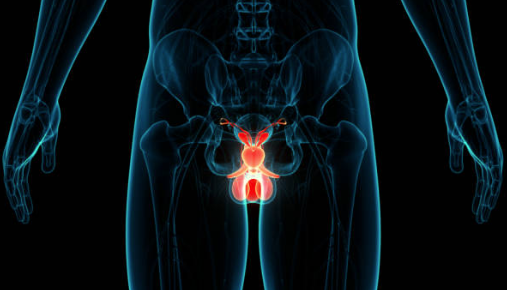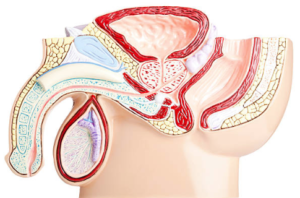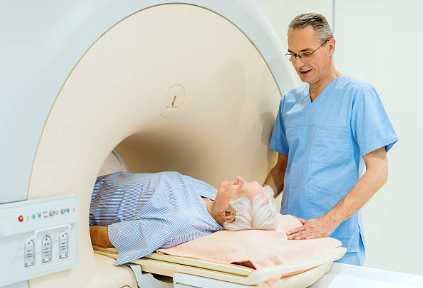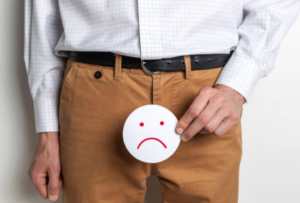Beat Swollen Prostate Woes with Nature’s Remedies for Ultimate Relief

Beat Swollen Prostate Woes with Nature’s Remedies for Ultimate Relief
Your Guide to Swollen Prostate Remedies: Relief for Men over 40
Are you a man over 40 experiencing frustrating bathroom trips, discomfort, or even concerns about your sex life? You might be dealing with a swollen prostate, a common condition that can sneak up on men as they age.
Don’t worry, you’re not alone! Let’s dive into understanding what’s happening, the telltale signs, and most importantly, solutions to get back to feeling like yourself.
What does a swollen prostate feel like?
Imagine a walnut-sized gland at the base of your bladder – that’s your prostate. When it swells (also called benign prostatic hyperplasia or BPH), it’s like that walnut is growing bigger, squeezing the tube that carries urine out (your urethra). This can feel really disruptive to your daily life. The result? Uncomfortable symptoms like:
- Urgent Need to Go: Feeling like you constantly need to pee, even when you just went. This sense of urgency can even lead to accidents if you don’t find a bathroom quickly.
- Weak Stream: Trouble getting started, or a dribbling flow instead of a strong stream. Imagine how frustrating that can be!
- Nighttime Wakeups: Waking up frequently at night to visit the bathroom can leave you exhausted the next day. A swollen prostate disrupts your sleep cycle and overall well-being.
- Feeling Like You Can’t Empty Fully: A sensation that your bladder is never quite empty. This means more frequent trips to the bathroom, and never really feeling satisfied.
- Pain or Discomfort: Sometimes, a swollen prostate can cause pain or discomfort in the lower abdomen or pelvic area. This can range from a mild ache to a sharper discomfort.
Does this sound familiar?
If you’re experiencing these symptoms, it’s important to see a doctor. A swollen prostate is very common, especially as men age, and many treatments can help you regain control and feel better!
Why Me? Swollen prostate reasons
The exact cause of a swollen prostate is still a bit of a medical mystery, but we know a few things contribute to this common condition:
- Age is a Factor: As men get older, hormonal changes can trigger prostate growth. Think of it like those unexpected gray hairs – part of the aging process for many men.
- Family History: If your dad or brother had prostate problems, your chances are higher too. Genetics can sometimes play a role.
- Health Conditions: Diabetes, heart disease, and obesity can increase your risk. Taking care of your overall health may offer some protection for your prostate too.
Other Potential Swollen Prostate Cause Factors:
- Diet and Lifestyle: While research is ongoing, some studies suggest that diet, exercise, and maintaining a healthy weight might play a role in prostate health.
- Inflammation: There’s a possible link between chronic inflammation and an enlarged prostate.
Key Takeaway: It’s not always possible to pinpoint one specific cause for a swollen prostate. Often, it’s a combination of these factors coming together.
Hold On… Symptoms of a swollen prostate?

You might be surprised how many seemingly unrelated issues could actually signal prostate trouble. Along with the classic bathroom woes, watch out for:
- Blood in Urine or Semen: This needs a doctor’s attention right away.
- Painful Ejaculation: Discomfort during sex can be related to prostate issues.
The Bedroom Question: Can a swollen prostate cause erectile dysfunction?
Yes, sometimes. While they’re separate conditions, a swollen prostate and erectile dysfunction (ED) can overlap. This can happen due to both physical discomfort and the emotional stress of prostate problems affecting a man’s confidence and overall health.
Alright, Enough! How to treat a swollen prostate
Good news: there are tons of effective options to find relief from a swollen prostate. The best approach depends on your specific symptoms and how much they bother you. Let’s explore the possibilities:
1. Watchful Waiting: The “Let’s See” Approach:
If your symptoms are mild, your doctor might suggest starting with watchful waiting. This means monitoring the situation while making some lifestyle changes that can help:
- Limit Fluids at Night: Cut back on drinking a couple hours before bed to avoid those nighttime bathroom runs.
- Go When You Gotta Go! Don’t hold it in – empty your bladder fully when you have the urge.
- Watch the Caffeine and Booze: These can make you pee more and irritate your bladder.
2. The Power of Plants: Natural swollen prostate remedies
Several plant extracts show promise for prostate health:
- Saw Palmetto: Popular prostate supplement, may improve urinary flow.
- Pygeum: Extract from the African plum tree, could ease nighttime urination.
- Beta-sitosterol: Plant compound with potential benefits.
3. Prescription Power: When Lifestyle Changes Aren’t Enough
If symptoms are getting in the way of your life, making you miserable, and disrupting your sleep, it’s time to talk to your doctor about medication options. There are several types that can help:
-
Alpha-Blockers: These medications relax muscles around the prostate and bladder neck, making it easier to urinate. Think of them as opening up the passageway for smoother flow.
- Tamsulosin (Flomax) – One of the most commonly prescribed, known for quick symptom relief.
- Alfuzosin (Uroxatral) – May have fewer sexual side effects compared to some other alpha-blockers.
- Silodosin (Rapaflo) – A highly selective alpha-blocker, potentially lowering the risk of blood pressure side effects.
- Doxazosin (Cardura) – An older alpha-blocker, also used for blood pressure, so it might be a good option if you have both conditions.
- 5-alpha reductase inhibitors: These work by shrinking the prostate over time. They block the production of a hormone that contributes to prostate growth.
-
- Finasteride (Proscar, Propecia) – The most widely used, available in different doses for prostate issues and hair loss.
- Dutasteride (Avodart) – Similar to finasteride but may be slightly more effective in prostate reduction
Important Things to Know about Alpha Blockers:
-
- Medication Takes Time: Be patient, especially with 5-alpha reductase inhibitors. It might take several weeks or months to feel the full benefits.
- Potential Side Effects: Talk to your doctor about possible side effects of any medication. These can vary depending on the drug and the individual.
- Combination Therapy: Sometimes, doctors recommend using both an alpha-blocker and a 5-alpha reductase inhibitor for maximum relief.
Important Note: Always consult your doctor before starting any new medication. They can help you choose the best option based on your specific symptoms and medical history.
How Prostate Medications Work
Let’s break this down in a simple way to make it reader-friendly:
-
Alpha-blockers: The Fast and Furious Helpers
- These are like traffic controllers for your urinary system. They relax the muscles around your prostate and bladder neck, widening the ‘road’ for urine to flow more easily. Relief can be felt relatively quickly.
-
5-Alpha Reductase Inhibitors: The Slow and Steady Shrinker
- These tackle the root of the problem by blocking a hormone (DHT) that causes prostate growth. Think of them as gradually deflating a balloon (your prostate) over time. This leads to less pressure on the urethra and improved symptoms, but it takes longer to see a full effect.
Swollen Prostate Treatment Options: Take Control of Your Health
It’s empowering to know you have choices! Here’s a breakdown of the different paths you can explore:
Lifestyle Changes: The Foundation of Prostate Health
- Nighttime Fluid Watch: Reduce fluids a few hours before sleep to minimize bathroom trips.
- Cut Back on Irritants: Caffeine and alcohol can make your bladder work overtime.
- Bladder Training: Techniques to ‘hold it’ longer and strengthen bladder control.

Natural Remedies: Seeking Support from Plants
- Saw Palmetto: A widely used supplement, though its effectiveness is debated.
- Pygeum: Extract from the African plum tree, may help with nighttime urination.
- Beta-sitosterol: A plant compound with potential benefits for prostate health.
- Important: Always talk to your doctor before trying supplements – they can interact with other medications.
Medications: When Symptoms Need Stronger Relief
- Alpha-blockers: Relax muscles for easier urination (tamsulosin, alfuzosin, and others).
- 5-alpha reductase inhibitors: Shrink the prostate over time (finasteride, dutasteride).
- Combination Therapy: Sometimes, doctors prescribe both types for maximum benefit.
Minimally Invasive Procedures: The Middle Ground
- TURP (Transurethral Resection of the Prostate): A common procedure using a scope to remove prostate tissue.
- Laser Therapy: Various laser techniques to vaporize or remove excess prostate tissue.
- Other Options: Newer procedures like UroLift, Rezum (steam therapy), and others are available.
Surgery: For Severe Cases or When Other Treatments Fail
- Open Prostatectomy: Traditional surgery for very large prostates or complicated cases.
- Laparoscopic or Robotic Prostatectomy: Minimally invasive surgery using small incisions.
Finding the Right Fit: It’s a Personal Journey
Your doctor is your best partner in figuring out the ideal treatment plan. It depends on the severity of your symptoms, other health conditions, and your personal preferences.

FAQs: Your Swollen Prostate Questions Answered
FAQ-1: What are the first signs of a swollen prostate?
ANSWER: The most common early signs include:
- Frequent need to urinate, especially at night
- Difficulty starting urination or a weak stream
- Feeling like you can’t fully empty your bladder
- Dribbling or leaking urine after you finish
FAQ-2: Can a swollen prostate go away on its own?
ANSWER: Unfortunately, a swollen prostate typically doesn’t go away on its own. It may even continue to enlarge over time. However, lifestyle changes and treatments can offer significant relief from symptoms and improve your quality of life.
FAQ-3: What’s the difference between alpha-blockers and 5-alpha reductase inhibitors?
ANSWER: Both types of medication help with a swollen prostate, but they work in different ways:
- Alpha-blockers: Provide fast relief by relaxing muscles, making it easier to urinate.
- 5-alpha reductase inhibitors: Shrink the prostate over time for longer-lasting improvement.
FAQ-4: Are there any natural remedies that actually work for a swollen prostate?
ANSWER: Some plant-based supplements show potential benefits, but research is ongoing. The most common ones include saw palmetto, pygeum, and beta-sitosterol. It’s essential to talk to your doctor before trying any supplements, as they might interfere with other medications you’re taking.
FAQ-5: When do I need surgery for a swollen prostate?
ANSWER: Surgery is usually considered when other treatment options, like medications and minimally invasive procedures, haven’t provided enough relief, or if you have severe complications like urinary blockage. Your doctor will help determine if surgery is the best option for you.
FAQ-6: Does an enlarged prostate affect a man’s sex life?
ANSWER: Yes, an enlarged prostate can sometimes affect a man’s sexual health in a few ways:
- Erectile dysfunction (ED): While they’re separate conditions, a swollen prostate and ED can be linked. The physical discomfort of the prostate itself, or the emotional stress of dealing with urinary issues, can contribute to ED.
- Decreased libido: Some men experience a lower sex drive due to the bothersome symptoms of an enlarged prostate.
- Ejaculation problems: In some cases, a swollen prostate can affect ejaculation, causing pain or difficulty achieving orgasm.
SEE ALSO: Latest Prostate Supplements >>

